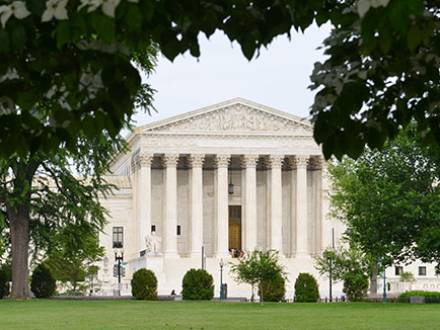Recent Blog Posts
Navigating Milwaukee’s 2025 Property Assessment Process: What Commercial Property Owners Need to Know
Once again, in 2025, the commercial property owners in the City of Milwaukee are opening up their mail to find significant changes in their property assessments. According to the Milwaukee Business Journal, the City of Milwaukee has reported a 17% increase in assessed property values compared to 2024. If you are a commercial property owner who has taken a hit based on this increase, there are remedies.
City of Milwaukee Open Book Period
If a commercial property taxpayer is unhappy with its assessment, it has an opportunity to communicate with the Assessor’s Office in the City of Milwaukee during the Open Book period from April 21-May 19, 2025. During the "Open Book," property owners can review their assessments and discuss a modification with the assessor in an informal manner. Many times, this informal process can allow for quicker resolutions without the need for a formal appeal. If there is some sort of error or misunderstanding as it relates to the assessment, the Open Book is a good time to try to sort it out with the assessor.
FinCEN Removes BOI Reporting Requirements for U.S. Companies under the Corporate Transparency Act
 FinCEN Removes BOI Reporting Requirements for U.S. Companies under the Corporate Transparency Act
FinCEN Removes BOI Reporting Requirements for U.S. Companies under the Corporate Transparency Act
On March 21, 2025, FinCEN issued an interim final rule to remove the Beneficial Ownership Information ("BOI") reporting requirements for U.S. companies and U.S. persons under the Corporate Transparency Act ("CTA"). As detailed in our prior blogs, the enforceability of the CTA has been in question for months and challenged in multiple courts throughout the country.
FinCEN’s interim final rule narrows the BOI reporting requirements to foreign reporting companies. Notably, the new rule exempts foreign reporting companies from reporting the BOI of any U.S. individuals who are beneficial owners of the foreign company. These changes are consistent with the U.S. Department of Treasury’s March 2nd announcement to suspend enforcement of the CTA against U.S. Citizens and domestic reporting companies. FinCEN intends to issue a final rule this year.
Update on Corporate Transparency Act and FinCEN’s Pause on Enforcement Actions
 The Corporate Transparency Act ("CTA") and its Beneficial Ownership Information ("BOI") reporting deadlines are back in effect after months of judicial whiplash. As detailed in our prior blogs, the enforceability of the CTA has recently been challenged in multiple forums and lawsuits. Ultimately, the Government has prevailed (for now) and the BOI reporting deadlines have been reinstated with many companies facing a March 21, 2025, deadline.
The Corporate Transparency Act ("CTA") and its Beneficial Ownership Information ("BOI") reporting deadlines are back in effect after months of judicial whiplash. As detailed in our prior blogs, the enforceability of the CTA has recently been challenged in multiple forums and lawsuits. Ultimately, the Government has prevailed (for now) and the BOI reporting deadlines have been reinstated with many companies facing a March 21, 2025, deadline.
On February 27, 2025, the Financial Crimes Enforcement Network (FinCEN) issued a stunning release that it will not impose any fines or penalties against companies for failure to file or update their BOI reports by the March 21st deadline. FinCEN will not take any enforcement actions until it establishes a new reporting deadline. FinCEN intends to issue this new deadline no later than March 21, 2025.
FinCEN appears to acknowledge the recent confusion and frustrations surrounding the CTA’s status as it claims to recognize "the need to provide new guidance and clarity as quickly as possible, while ensuring that BOI that is highly useful to important national security, intelligence, and law enforcement activities is reported."
Fifth Circuit Reverses Course on Reinstating the Corporate Transparency Act Reporting Deadlines
 The uncertainties surrounding the Corporate Transparency Act ("CTA") continue with the most recent decision from the Fifth Circuit just days after it granted the Government’s emergency request to lift the nationwide injunction against the enforcement of the CTA.
The uncertainties surrounding the Corporate Transparency Act ("CTA") continue with the most recent decision from the Fifth Circuit just days after it granted the Government’s emergency request to lift the nationwide injunction against the enforcement of the CTA.
As detailed in our prior blogs, the Government appealed the U.S. District Court’s injunction in early December, and the motions-panel of the Fifth Circuit Court of Appeals reinstated the CTA’s reporting deadlines on December 23, 2024.
On December 26, 2024, the merits-panel, who is tasked with ruling on the government’s appeal of the nationwide injunction, vacated the motions-panel’s order to reinstate the reporting deadlines "in order to preserve the constitutional status quo while the merits panel considers the parties’ weighty substantive arguments . . ."
Court of Appeals Reinstates Corporate Transparency Act Reporting Deadlines
 The 5th Circuit Court of Appeals has lifted the nationwide injunction issued by the U.S. District Court for the Eastern District of Texas in early December that blocked the enforcement of the Corporate Transparency Act ("CTA") and its January 1, 2025, Beneficial Ownership Information ("BOI") reporting deadline.
The 5th Circuit Court of Appeals has lifted the nationwide injunction issued by the U.S. District Court for the Eastern District of Texas in early December that blocked the enforcement of the Corporate Transparency Act ("CTA") and its January 1, 2025, Beneficial Ownership Information ("BOI") reporting deadline.
On December 23, 2024, the appeals court determined that the government made a strong showing on its likelihood of success on the merits of defending the CTA’s constitutionality and stayed the lower court’s injunction. The three-judge panel disagreed with the lower court’s assessment that enforcement of the CTA exceeds Congress’s powers and stated that the CTA’s reporting requirements are well within Congress’s broad authorities to regulate economic activity under the Constitution’s Commerce Clause.
In response to the 5th Circuit’s ruling, FinCEN announced new reporting deadlines to alleviate pressure on reporting entities that may not be prepared to meet the original January 1st deadline:
Government Appeals the Nationwide Injunction Against Enforcement of the Corporate Transparency Act
 On December 3, 2024, the U.S. District Court for the Eastern District of Texas issued a nationwide preliminary injunction against enforcement of the Corporate Transparency Act ("CTA") and its January 1, 2025, Beneficial Ownership Information ("BOI") reporting deadline.
On December 3, 2024, the U.S. District Court for the Eastern District of Texas issued a nationwide preliminary injunction against enforcement of the Corporate Transparency Act ("CTA") and its January 1, 2025, Beneficial Ownership Information ("BOI") reporting deadline.
As detailed in our prior Blog, the CTA requires most entities formed or registered to do business in the United States to file information about the entity and the individuals who own or control the entity with the Financial Crimes Enforcement Network (FinCEN).
In Texas Top Cop Shop, Inc., v. Garland, (E.D. Tex., No. 4:24-cv-478), Federal Judge Amos Mazzant granted the plaintiffs’ motion for a preliminary injunction and ruled against the enforcement of the act until further determinations are made regarding the constitutionality of the CTA. The Court reasoned that the implementation of the CTA likely exceeds Congress’s powers, and that enforcement of a potentially unconstitutional law is against public interest. Preliminary injunctions are temporary measures, and the Texas District Court’s ruling is not a final determination of the CTA’s constitutionality. Notably, Judge Mazzant’s decision is in direct conflict with other federal district court rulings that denied plaintiffs’ motions for preliminary injunctions in their challenges to the constitutionality of the CTA.
What Happens If There Is No Partnership Agreement?
 They say that teamwork makes the dream work. In fact, many of America’s most successful small businesses were founded by teams of two, many with no partnership agreement in place when they were first formed. Some of these dynamic duos went on to lead the world’s most lucrative companies
They say that teamwork makes the dream work. In fact, many of America’s most successful small businesses were founded by teams of two, many with no partnership agreement in place when they were first formed. Some of these dynamic duos went on to lead the world’s most lucrative companies
However, not every casual business partnership will end with its members becoming billionaires. That’s why it does not make sense for most businesses to start with no business partnership agreement ironed out
A partnership agreement lays out the responsibilities of each partner in the business. It will also detail how much of the business each partner owns and how much profit and loss each partner is responsible for. A well-crafted partnership agreement also includes rules about how you will manage the business and addresses succession planning issues, such as the death or departure of a partner.
An experienced Milwaukee business lawyer can help you work out the details of your Wisconsin partnership agreement. The Mallery s.c. team handles all manner of partnership formation and helps partners put partnership agreements in place.
What is Liability Insurance?
 By Attorney Samantha S. Bailey
By Attorney Samantha S. Bailey
Email: sbailey@mallerysc.com
Phone: 414-727-6294
Liability Insurance is your protection against monetary amounts you could owe as a result of a judgment against you in civil litigation. Another word for this is "indemnity." Indemnity in insurance law represents a contractual requirement for your insurance company to financially compensate the losses incurred by you for claims covered in your policy. Liability insurance may be Commercial General Liability insurance which provides general liability coverage to businesses for incidents such as slip and falls, property damage, etc. in the commercial setting. Liability insurance may also be found in professional, home, and automobile liability insurance policies for claims such as car accidents, dog bites, malpractice claims, or other injuries that occur on your property. In whatever form you may have your liability insurance, it is important to understand your policy and the restrictions on your potential coverage to ensure your insurance company covers your loss and defends you against damages sought against you. The Wisconsin litigation attorneys here in Milwaukee at Mallery s.c. handle all types of liability insurance coverage questions and disputes.
How Does Wisconsin Handle The Partition Of Real Estate?

By Stephen L. Lovell
Email: slovell@mallerysc.com
Phone: 414-727-6297
There are often occasions when one may share ownership of real estate with another person. Many times, that business or personal relationship will run its course. However, that does not solve the problem of what to do with the real estate. When at least two co-owners of real property cannot agree on how best to use or dispose of a piece of real estate, either of them can seek partition.
What is Partition?
In Wisconsin, every co-owner who no longer wishes to own their interest in the real estate has a right to partition their interest in the property, no matter what ownership percentage of the property they own. Chapter 842 of the Wisconsin Statutes governs the partition of real estate in Wisconsin.
The Corporate Transparency Act
 The Corporate Transparency Act ("CTA"), enacted in 2021, goes into effect on January 1, 2024. The CTA was enacted to combat illicit activity, such as tax fraud, money laundering and financing of terrorist activities. Most entities and closely held businesses organized or operating in the United States will be required to file information about the entity and the individuals who own or control these entities with the Financial Crimes Enforcement Network (FinCEN). Each Reporting Company must file a Beneficial Ownership Information report ("BOI report") with FinCEN detailing the Beneficial Ownership of the Reporting Company and its Company Applicants.
The Corporate Transparency Act ("CTA"), enacted in 2021, goes into effect on January 1, 2024. The CTA was enacted to combat illicit activity, such as tax fraud, money laundering and financing of terrorist activities. Most entities and closely held businesses organized or operating in the United States will be required to file information about the entity and the individuals who own or control these entities with the Financial Crimes Enforcement Network (FinCEN). Each Reporting Company must file a Beneficial Ownership Information report ("BOI report") with FinCEN detailing the Beneficial Ownership of the Reporting Company and its Company Applicants.
What entities are required to report?
All Reporting Companies must comply with the CTA. Subject to limited exemptions, "Reporting Companies" include all legal entities registered to do business in the United States, including corporations, limited liability companies, partnerships, certain types of trusts, and any other type of entity that is registered or formed by a filing with a secretary of state’s office or similar state agency.
Blog
Navigating Milwaukee’s 2025 Property Assessment Process: What Commercial Property Owners Need to Know
Posted May 07, 2025
By Christopher L. Strohbehn Once again, in 2025, the commercial property owners in the City of Milwaukee are opening up their mail to find significant changes in their property assessments. According......Read More
FinCEN Removes BOI Reporting Requirements for U.S. Companies under the Corporate Transparency Act
Posted Mar 24, 2025
FinCEN Removes BOI Reporting Requirements for U.S. Companies under the Corporate Transparency Act On March 21, 2025, FinCEN issued an interim final rule to remove the Beneficial Ownership Information ("BOI") reporting......Read More
Update on Corporate Transparency Act and FinCEN’s Pause on Enforcement Actions
Posted Mar 03, 2025
The Corporate Transparency Act ("CTA") and its Beneficial Ownership Information ("BOI") reporting deadlines are back in effect after months of judicial whiplash. As detailed in our prior blogs, the enforceability......Read More

 414-271-2424
414-271-2424
 By
By 



